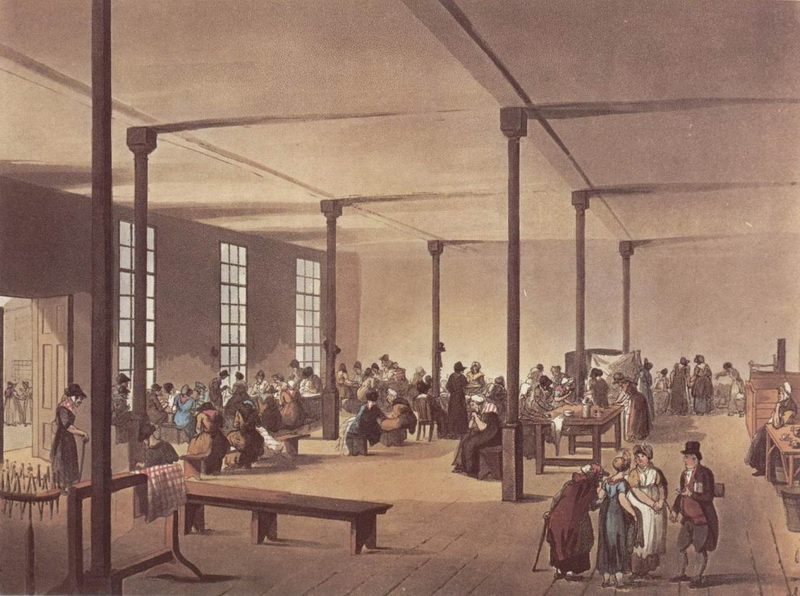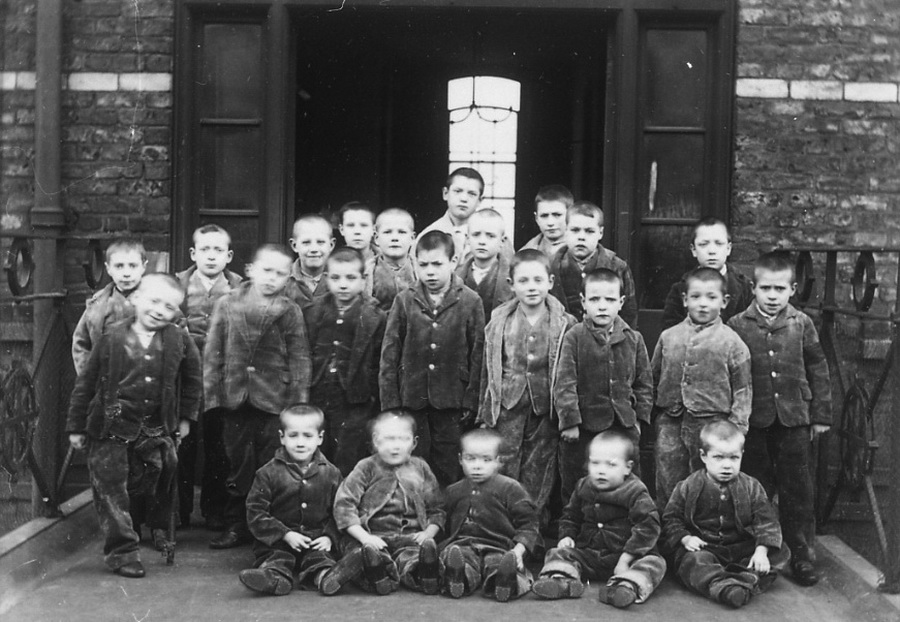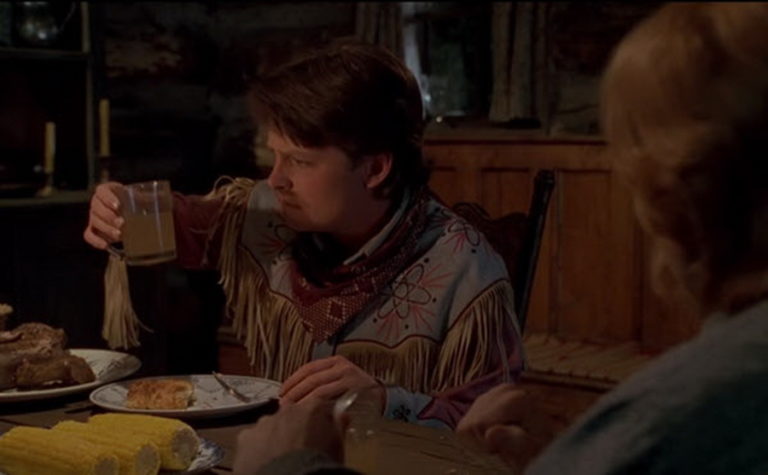Died In The Union WorkHouse Bradford
Place of death: Died in the union workhouse, Bradford!

The words glared at me, and punched me in the gut.
How could this happen to one of my ancestors? Wasn’t this one of the worst things that could happen? I went off and read about the concept of the workhouse, or the poorhouse as was otherwise known. Being busy with another project, I put the issue on the back burner and moved on.
Then I found that it had happened again, this time to a sibling of one of my ancestors! So I did more research. Now to decide whether I could do the topic justice, or if there was enough information already out there.
I decided that I’d write a summary of what I had learned, with links to more information!
Was ending up in the workhouse the worst that could happen?
Ending up in the poorhouse wasn’t what you would imagine to be a good thing, either for you, or for your offspring. In the absence of a modern social security system though, it was better than nothing. Local parishes and counties in Britain had had responsibility for providing shelter and basic food for the poor for some time.
In times of full employment, poverty was seen as a sign of wasteful living.
The operators of workhouses therefore tried to ensure that inmates didn’t have an easier time than they may have had outside. Some institutions were better managed than others, while some operators took it on themselves to punish inmates for being poor. Poverty was regarded as a moral failing.
While life in many workhouses was harsh by today’s standards, there was a level of medical care and other services not available to those outside.
Some workhouse operators attempted to run their institutions at a profit by putting the inmates to work. Many ran into the issues trying to use unskilled labour. At other times, when this solution did work, commercial businesses in the area were put at a disadvantage by the use of cheaper labour.
The workhouse concept moved to the United States, with the first opening in Boston in 1660. Poor houses began closing in the US after the Federal Government became more involved in providing social services following the great depression.
The last US workhouse closed in Texas in during the 1970s.
Canada and Mexico also used the concept, with Canada taking it one step further and using “poor farms”, where the poor could grow their own food. Other countries that used “poor houses” included Australia, Portugal, and other European nations.
What about today though? Are the unemployed and poverty stricken to blame for their predicament? Is better education the answer? Are there enough jobs to go around?
What strikes me about the need for these houses in the first place is that the greatest need came in times of upheaval. The need arose after wars, changing industrial practices and increased mechanization in farming. Today, as industries close, with many going offshore, ongoing wars and increased automation, are we facing the same upheaval?
Are we educating people to work in industries that no longer exist, and if so, is it fair to blame them if they can’t find work? How do we as a society adapt, and how can we help individuals to retrain and adapt?
Jesus said, “The poor you will always have with you…” Matthew 26:11, so this isn’t a new problem.
The even older Book of Deuteronomy says in chapter 15:11
“For there will never cease to be poor in the land; that is why I am commanding you to open wide your hand to your brother and to the poor and needy in your land.”
Whatever the cause, poverty, whether due to injury, illness, war or changing technology, has always been with us. As members of a just society, are we responsible to help, either by direct giving or by paying taxes? Are we indeed, our brother’s keeper?
Blaming the victims obviously isn’t the answer, but the workhouse experience probably shouldn’t be condemned either, but rather, seen as a step in the right direction.

Sources:
Wikipedia: Workhouses
History.com: The Last Place You Wanted To Be..

